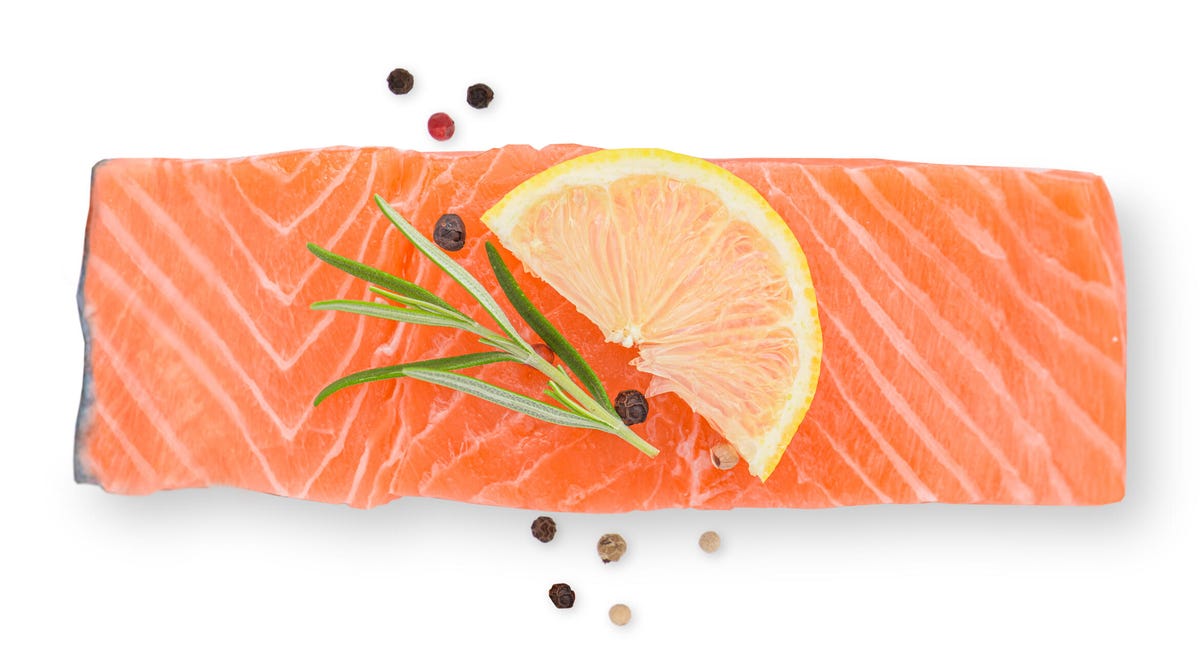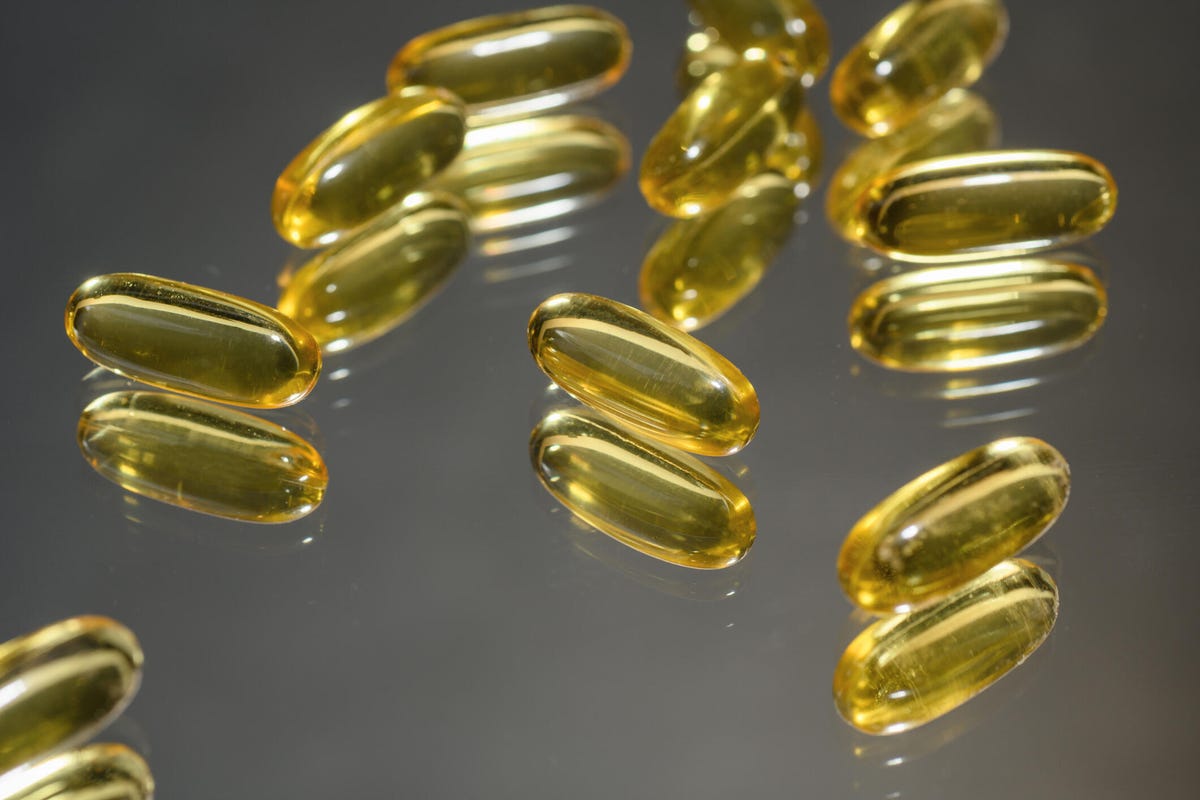Collagen Supplements: What They Can Do For Your Body And What To Watch For
Collagen always comes up when it comes to anti-aging. Found in the skin, hair and nails, for example, collagen provides structure and support throughout the body. That’s why many people take collagen supplements to maintain their youthful appearance as they age. But do collagen supplements really work that way?
Several studies have found that taking collagen supplements daily or adding collagen-rich foods to your diet offers many benefits and can actually help improve the health of your skin, joints, hair and bones. There are a few things you should know about collagen and collagen products before incorporating them into your daily health routine.
Below, we’ll explain what collagen is, where to get it, and how you can benefit from collagen supplements — along with some caveats to be aware of. While you’re at it, don’t forget to focus on the best food sources for the other vitamins and minerals you need.
What is collagen?
Before discussing its benefits, what is collagen? In short, collagen is the most abundant protein in the human body and makes up a third of all protein. It acts as a connective tissue that holds your muscles, tendons, ligaments, bones and skin together. It acts as a building block for your muscles, tendons, ligaments, bones, skin and promotes healthy joints and connective tissue.
There are about 30 known types of collagen, but type I is the most common (it is found in connective tissue and makes up 90 percent of all collagen in the body). Types II, III and IV are also common and are found in various parts of the body, including the joints, kidneys, ears and blood vessels.
All this leads us to another important question: what is collagen good for? Your body naturally makes collagen by combining many amino acids (like proline and glycine) with zinc, vitamin C and copper. As you age, production slows down and the collagen in your body begins to break down at a faster rate.
When that happens, you may notice that your skin is wrinkling, your tendons and ligaments are weakening and your muscles are shrinking. In order to prevent or delay these effects, some people make up for what their body has lost by eating foods containing collagen or collagen supplements.
Adding collagen to your diet

If you want to boost your healthy collagen production, you should make sure that your diet includes foods that contain these important ingredients:
- Bone broth
- Fish and shellfish
- Chicken
- Pig skin
- Eggs
- Beans
- Citrus
- A bell pepper
- Nuts
Eating nutritious foods and a combination of these foods is the best way to boost collagen protein in your body. You can also consider taking collagen supplements (usually collagen powder or capsules) if you are not getting enough collagen from food alone.
For good results, experts advise taking a collagen supplement one hour before exercise, but always check the label and talk to your doctor before starting a new health routine.
The benefits of collagen
Now that we’ve covered the basics, let’s take a look at some of the benefits of collagen supplementation.
It builds strong bones
Bones are full of collagen, but as you age, the protein begins to break down – and so does bone health – leading to decreased bone strength and bone density. By including collagen supplements in your diet, you may be able to prevent some bone loss and reduce the risk of bone-related problems, including osteoporosis and fractures.
Reduces joint pain
Collagen also works together with cartilage to keep your joints functioning properly. Over the years, as it wears down, it can lead to stiff and achy joints and put you at greater risk of osteoarthritis. The good news is that taking collagen supplements has been found to reduce joint pain in physically active people. It can also act as a pain reliever for people with existing joint problems.
It improves the skin
Your skin also contains collagen, which provides elasticity and hydration when you’re young. But as you get older, your skin becomes thinner and wrinkles due to a decrease in collagen levels. Interestingly, studies have shown that adding collagen to your diet can improve skin’s elasticity, firmness and hydration, significantly reducing the effects of aging.

It promotes healthy hair
Collagen is made from some of the amino acids used to build keratin, the protein that makes up your hair. Because of this connection, there is some evidence that eating more collagen can help with the health of your hair by growing it, reducing shedding and delaying graying.
Increases muscle mass
Muscle tissue contains about 10% collagen. When the collagen in your body starts to break down, you can lose muscle mass and develop a condition called sarcopenia (age-related muscle loss). Fortunately, studies have shown that taking collagen supplements, along with eating more protein and regular resistance exercise, can help people with sarcopenia build muscle strength.
Contraindications to collagen supplements
Despite these benefits, there are also a few drawbacks to collagen supplements that you should keep in mind before adding them to your routine.
They contain animal products (and sometimes, allergens)
Traditional collagen supplements, and all dietary supplements in general, are made from animal products, so they are not suitable if you follow a plant-based diet. There are vegan collagen options on the market, but it’s unclear how they compare to those made from animal products. Likewise, if you have food allergies, be sure to read the label on collagen supplements thoroughly. In some cases, they may contain common ingredients such as fish or eggs.
Control is a gray area
Collagen supplements are regulated as food (not drugs) by the US Food and Drug Administration, which means that their ingredients and production are not monitored by the governing body. These products are not subject to the same regulations and strict approval process as pharmaceuticals, so it can be difficult to know about the quality, purity and safety of the ingredients.
Success studies are limited
Although there have been studies on the effectiveness of collagen (many of which we have cited above), more research needs to be done. Also, some of the existing studies have been funded by companies that produce collagen supplements, which can raise ethical questions about bias.
Supplements similar to collagen

It is difficult to find other supplements that replicate the effects of collagen because its amino acid composition is different from other proteins. You can try increasing your intake of glycine and proline, essential amino acids involved in collagen formation. They are usually found in protein-rich foods such as meat and poultry, but are also available in supplement form.
If you’re really interested in how collagen can help improve your hair, nails, and skin, you might consider keratin or biotin, which often come in the form of shampoos and salon treatments but are also sold as food items. Biotin is also found in certain foods, including legumes, egg yolks, nuts and avocados.
For more advice on supplements, here are five exercise supplements that are proven to work. Also, Check out these three melatonin alternatives for a good night’s sleep without drowsiness the next day.
#Collagen #Supplements #Body #Watch
